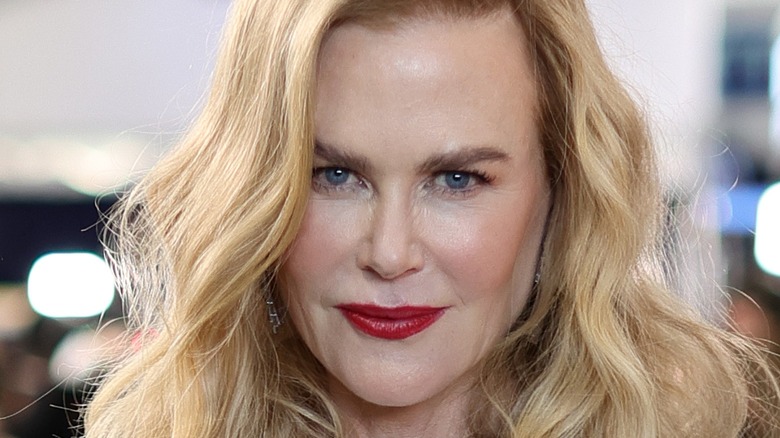Top
Top 15 Hollywood Actresses

Some of the most gifted and beautiful females in the world are found in Hollywood. These ladies have wowed viewers with their remarkable performances and have become movie legends.
Hollywood actresses have shown their adaptability in a variety of genres and have emerged as role models for women all around the globe, from traditional beauty to contemporary stars.
The top 15 Hollywood ladies who have had a big influence on the film business will be covered in this article.
In addition to excelling as actors on the big screen, these women have paved the way for the next actress generations by using their power to promote significant causes.
These females, who range from Oscar winners to movie office hits, have captured the hearts of viewers everywhere and cemented their places in Hollywood history.
Without further ado, let’s examine the top 15 Hollywood ladies and honor their remarkable achievements.
15. Natalie Portman

Natalie Portman is an Israeli-American actress and director. Born in Jerusalem in 1981, she migrated to the US with her family as a toddler. She made her acting debut aged 12 in “Leon: The Professional” (1994), which gained great praise.
Padmé Amidala in the Star Wars prequel trilogy was Portman’s breakout performance in 1999. “V for Vendetta” (2006), “Black Swan” (2010), and “Jackie” (2011) followed (2016).
Portman wrote and directed “A Tale of Love and Darkness” as well as performed (2015). Portman is a Harvard psychology graduate and animal rights and environmental activist.
14. Reese Witherspoon

Since the mid-1990s, actress, producer, and businesswoman Reese Witherspoon has been a Hollywood star. Witherspoon, born in New Orleans in 1976, started acting at an early age and became famous for her part in “Election” (1999).
“Legally Blonde” gave Witherspoon her first Golden Globe nomination for Best Actress in a Comedy or Musical. “Sweet Home Alabama” (2002), “Walk the Line” (2005), and “Wild” (2006) followed (2014).
13. Lupita Nyong’o

Since “12 Years a Slave,” Kenyan-Mexican actress Lupita Nyong’o has had a major effect on Hollywood. Nyong’o was reared in Kenya and attended Yale School of Drama.
“12 Years a Slave” garnered Nyong’o an Oscar for Best Supporting Actress and critical praise. She played Nakia in “Star Wars: The Force Awakens” (2015) and “Black Panther” (2018).
Nyong’o is noted for her talent and commitment. She has used her position to speak out against gender and racial prejudice. Nyong’o has authored “Sulwe,” a children’s novel, and performed in theater.
12. Brie Larson

American actress and director Brie Larson has become a Hollywood star. Larson, born in Sacramento in 1989, started acting at an early age and became famous for her part in “United States of Tara” (2009-2011).
In 2015’s “Room,” Larson earned an Academy Award for Best Actress. She was the first woman to lead a Marvel Cinematic Universe film in “Captain Marvel” (2019) and “Kong: Skull Island” (2017).
Larson directed and performed in “Unicorn Store,” a hit film (2017). She promotes the Time’s Up and Me Too campaigns and supports women’s rights. She also openly discusses her anxiousness and encourages others to get assistance.
11. Julia Roberts

Since the late 1980s, American actress and producer Julia Roberts has dominated Hollywood. Before “Pretty Woman,” Roberts, born in Atlanta in 1967, had tiny parts in cinema and TV.
Since then, Roberts has been in several films, including “Steel Magnolias” (1989), “Erin Brockovich” (2000), for which she earned an Academy Award for Best Actress, and “Eat Pray Love” (2010). She is one of the world’s most gorgeous and highest-paid actors.
Roberts co-founded Red Om Films in 2003 and is a renowned producer and actress. She has promoted education and poverty eradication via UNICEF and amfAR.
10. Charlize Theron

Charlize Theron has been a Hollywood star for nearly 20 years. The 1975 South African-born Theron went to the US to model as a youngster.
“The Devil’s Advocate” marked Theron’s debut. She starred in “Monster” (2003), “Mad Max: Fury Road” (2015), and “Bombshell” (2015). (2019). She won a Primetime Emmy for her part in “Monster” (2021).
In 2003, Theron created Denver and Delilah Productions, a successful producing firm. She supports animal rights, LGBTQ rights, and African education and healthcare. She is also known for championing gender equality in Hollywood and beyond.
9. Nicole Kidman

Since the early 1990s, Australian-American actress and producer Nicole Kidman has dominated Hollywood. Kidman was born in Hawaii to Australian parents and reared in Sydney, Australia.
“Days of Thunder” marked Kidman’s debut. “Moulin Rouge!” (2001), “The Hours” (2002), and “Lion” (2004) followed (2016). She won a Primetime Emmy for her part in “Big Little Lies” (2017-2019).
In 2010, Kidman started Blossom Films, a successful production firm. She has advocated for women’s rights, cancer research, and UNICEF and UNDFW.
8. Sandra Bullock

Sandra Bullock has been a Hollywood star since the early 1990s. Before “Speed,” Bullock, born in 1964 in Virginia, had tiny appearances in cinema and television.
Bullock is noted for her roles in “Miss Congeniality” (2000), “The Blind Side” (2009), and “Gravity” (2013). She is one of the world’s most gorgeous and highest-paid actors.
In 1995, Bullock co-founded Fortis Films, a successful production firm. She has supported the American Red Cross and Warren Easton High School in New Orleans, promoting education and disaster assistance.
7. Angelina Jolie

Angelina Jolie is an American actress, filmmaker, and philanthropist. Jolie, born in Los Angeles in 1975, started acting in the 1990s and became a rising celebrity with her roles in “Hackers” (1995) and “Girl, Interrupted” (1999), for which she earned an Academy Award for Best Supporting Actress.
Jolie is renowned for her roles in “Lara Croft: Tomb Raider” (2001), “Changeling” (2008), and “The Tourist” (2010). She also appears in “Maleficent” (2014) and its sequel, “Maleficent: Mistress of Evil” (2019).
Jolie directed and produced “In the Land of Blood and Honey” (2011) and “Unbroken” (2014). (2014). She founded the Maddox Jolie-Pitt Foundation, which promotes Cambodian community development and conservation, and was a UNHCR Goodwill Ambassador.
6. Jennifer Lawrence

Jennifer Lawrence is a Hollywood star. Before starring in the indie film “Winter’s Bone,” Lawrence, born in Kentucky in 1990, had tiny appearances in cinema and television (2010).
Lawrence is most recognized for her roles in “The Hunger Games” (2012–2015), “Silver Linings Playbook” (2012), and “Joy” (2015).
Lawrence advocates for women’s rights, ecology, and health concerns in addition to performing. She supports the World Food Programme and the Jennifer Lawrence Foundation, which promotes education, health, and arts. Her candor and humility have won over audiences worldwide.
5. Emma Stone

Emma Stone is one of Hollywood’s most sought-after leading women. Before “Superbad,” Stone, born in Arizona in 1988, had tiny television parts.
Stone is noted for her roles in “Crazy, Stupid, Love” (2011), “The Help” (2011), and “La La Land” (2016). “The Amazing Spider-Man” (2012) and its sequel are among her big roles (2014).
Stone advocates for mental health and the environment in addition to performing. The Child Mind Institute and Stand Up To Cancer are among her charities.
4. Scarlett Johansson
:max_bytes(150000):strip_icc()/Scarlett-Johannsen-Skincare-GettyImages-1205203053-ec3d6585433e405aa084e18067adb158.jpg)
Scarlett Johansson is a famous Hollywood actress and singer. Johansson, born in 1984 in New York City, started acting as a kid before her breakthrough performance in “Lost in Translation” in 2003.
Johansson is renowned for her roles in “The Avengers” (2012–2019), “Her” (2013), and “Jojo Rabbit” (2019), for which she was nominated for an Academy Award for Best Supporting Actress. In the MCU, she plays Black Widow.
Johansson has recorded many albums, including “Anywhere I Lay My Head” (2008) and “Break Up” (2009). She promotes gender equality and political involvement via Oxfam and Stand Up to Cancer. Johansson is a top-earning actress.
3. Viola Davis

Hollywood’s most lauded actress is Viola Davis. Davis, a 1965 South Carolina native, started performing on theater before moving to cinema and television.
Davis also won an Emmy for Best Actress in a Drama Series for her role in “How to Get Away with Murder” (2014–2020).
She supports education and women’s rights via Hunger Is and the Vaseline Healing Project. Davis is considered a gifted and versatile actor.
2. Cate Blanchett

Hollywood’s most esteemed actress is Australian Cate Blanchett. Blanchett, a 1969 Melbourne native, started her acting career on stage.
Blanchett has now been noted for her strong and nuanced performances in a broad variety of films, including the drama “Elizabeth” (1998), for which she got her first Academy Award nomination, and “The Lord of the Rings” (2001-2003), in which she portrayed Galadriel.
“Blue Jasmine” (2013), for which she won an Academy Award for Best Actress, and “Carol” (2015), for which she was nominated, are among her other highly lauded films.
1. Meryl Streep

Meryl Streep is a legendary American actress. Streep, born in 1949 in New Jersey, started performing on stage before moving to cinema and television.
Streep has received a record 21 Academy Award nominations and three wins for her dramatic and transforming performances in a variety of films.
She starred in “Sophie’s Choice” (1982), for which she won her first Academy Award, and “The Devil Wears Prada” (2006), for which she was nominated again.
She has acted in highly praised films such “Kramer vs. Kramer” (1979), “Out of Africa” (1985), “The Iron Lady” (2011), and “Little Women” (2019).
Conclusion
Last but not least, Hollywood is home to some of the most accomplished and brilliant females in the world, and this list of the top 15 actresses is only a tiny representation of the amazing talent that exists in the sector.
These actresses from seasoned greats like Meryl Streep and Julia Roberts to rising talents like Brie Larson and Lupita Nyong’o—have left a lasting impression on the entertainment industry and enthralled viewers with their compelling performances.
These women each contribute something distinctive and exceptional to the film, and their work continues to uplift and amuse audiences around.
Top
CisporaSeek: The Smarter Way to Search and Discover Information

We live in a time where there’s no shortage of information — but finding the right information can still feel impossible. Whether you’re researching a topic, comparing data, or looking for reliable sources, you’ve probably noticed that traditional search engines often leave you buried in irrelevant results.
That’s the exact problem CisporaSeek set out to solve.
CisporaSeek.cz is a new kind of search and discovery platform built in the Czech Republic. It uses artificial intelligence, semantic understanding, and smart filtering to deliver search results that actually make sense. Instead of showing you random pages, it focuses on giving you meaningful, verified, and contextual information — fast.
In simple terms: CisporaSeek helps people find what truly matters.
What Is CisporaSeek?
Think of CisporaSeek as an upgraded search assistant — one that understands your intent, not just your keywords.
It’s built with AI-driven technology that reads between the lines of your search, identifies what you’re really asking, and gives you results that are smarter and more relevant.
For example, if you search “climate change policies in Czech Republic,” CisporaSeek doesn’t just show random blogs — it points you to official government reports, local research, and verified media sources.
So instead of digging through dozens of pages, you get high-quality, focused results in seconds.
The Vision Behind CisporaSeek
The idea for CisporaSeek came from a simple observation: there’s a gap between the amount of data online and the quality of what people actually find.
The founders saw how frustrating online research had become — too many ads, unreliable content, and endless scrolling. They believed that search could be smarter, cleaner, and more human.
Their mission became clear:
- Make online search intuitive and intelligent
- Connect users with credible and meaningful sources
- Promote transparency, trust, and knowledge sharing
The result is CisporaSeek.cz — a platform that combines cutting-edge technology with a genuine understanding of how people think and search.
Why CisporaSeek Stands Out
1. Smarter Search Results
Unlike traditional search engines that rely only on keyword matches, CisporaSeek understands the context behind your search.
It uses semantic AI — meaning it recognizes relationships between words and ideas. This helps it provide precise, intent-based answers rather than random matches.
2. Reliable Information Only
CisporaSeek doesn’t show results from low-quality or spam websites. Its algorithm filters out unverified content, prioritizing trusted databases, academic research, government sources, and credible publishers.
That means every search result has real value — not just noise.
3. Locally Focused, Globally Relevant
While CisporaSeek.cz is proudly Czech, its insights reach beyond borders. It’s especially powerful for users who need both local data and international context, making it perfect for students, journalists, businesses, and researchers.
4. Private and Secure
User privacy is built into CisporaSeek’s design. Your searches aren’t tracked, profiled, or sold.
It’s a search platform that puts control back in the user’s hands — a refreshing change in today’s data-driven world.
Key Features of CisporaSeek
| Feature | What It Does | Why It Matters |
|---|---|---|
| AI-Powered Search Engine | Uses language understanding to interpret intent | Smarter, more accurate results |
| Trusted Source Indexing | Prioritizes verified academic and media sources | Cuts out misinformation |
| Personalized Recommendations | Learns from your past searches | Saves time and improves discovery |
| Data Visualization Tools | Turns insights into visual graphs | Great for research and analysis |
| Local + Global Data Mix | Combines Czech databases with international content | Broader perspective |
| Privacy-First Design | Doesn’t track or sell data | Builds trust with users |
How CisporaSeek Helps Different Users?
For Students and Researchers
If you’re writing a thesis, preparing a paper, or doing serious academic research, CisporaSeek saves hours of time. It finds verified academic papers, studies, and reports faster — with full citations and related topics.
For Businesses and Professionals
Companies use CisporaSeek.cz to gather market intelligence, analyze competitors, and monitor brand mentions.
Because it delivers data-driven insights instead of random web links, it’s a valuable tool for marketing teams, strategists, and entrepreneurs.
For Journalists and Media Experts
In journalism, accuracy matters more than ever. CisporaSeek helps media professionals fact-check stories, trace original sources, and stay on top of verified developments — avoiding misinformation traps.
For Government and Policy Makers
By connecting official databases and public records, CisporaSeek simplifies access to critical policy data and regional insights, supporting transparent, data-backed decision-making.
The Technology Behind CisporaSeek
CisporaSeek isn’t just another search bar — it’s built on a strong technological foundation designed for speed, precision, and intelligence.
1. Semantic AI Core
Its artificial intelligence engine uses natural language processing (NLP) to understand human language the way people do.
When you search for something, it interprets what you mean, not just what you type.
2. Machine Learning Adaptation
The more people use CisporaSeek, the smarter it gets. It constantly learns from search patterns to deliver more relevant results over time.
3. Human-Verified Indexing
Not everything can be left to machines. That’s why CisporaSeek also includes manual verification, ensuring that important or sensitive topics are cross-checked by human editors for accuracy.
Making Search Simpler, Not Harder
The biggest advantage of CisporaSeek is how simple it feels.
You don’t need to know how to use advanced filters or Boolean searches. Just type your query, and the platform does the heavy lifting for you.
It also provides:
- Clean, ad-free results
- Quick summaries for long documents
- Suggested topics so you can explore connected ideas effortlessly
In short, it’s a search tool that works the way you wish search engines worked.
CisporaSeek in the Czech Digital Landscape
Czechia is fast becoming one of Central Europe’s most innovative tech hubs — and CisporaSeek is part of that movement.
By combining AI research, local data systems, and human insight, the platform strengthens the country’s digital identity. It supports:
- Smarter public data access
- Better information transparency
- Stronger academic and business collaboration
In a region full of emerging innovation, CisporaSeek.cz stands out as a homegrown solution with global potential.
CisporaSeek vs Traditional Search Engines
| Aspect | CisporaSeek | Traditional Engines |
|---|---|---|
| Search Method | Understands meaning and intent | Matches keywords only |
| Result Quality | Verified and filtered | Mixed, often commercial |
| User Privacy | Protected and anonymous | Often tracked |
| Local Relevance | Strong Czech integration | Global, but less specific |
| Noise Filtering | Minimal ads or clutter | Frequent sponsored results |
A Step Toward Ethical and Responsible AI
CisporaSeek isn’t just about smart technology—it’s about responsible innovation.
Its approach to AI emphasizes:
- Transparency: Every source is traceable and explainable
- Privacy: No personal data exploitation
- Sustainability: Efficient cloud computing to reduce environmental impact
In an age when data misuse is common, CisporaSeek sets a new ethical standard for search platforms.
What’s Next for CisporaSeek
The team behind CisporaSeek isn’t stopping here.
Their roadmap includes:
- Voice-based semantic search for hands-free access
- Collaboration tools for research groups and teams
- Enterprise APIs for organizations to integrate CisporaSeek’s intelligence into their systems
- Educational partnerships to support universities and libraries
In the near future, CisporaSeek aims to become not just a Czech innovation—but a European leader in intelligent search.
Conclusion
In a world drowning in information, clarity is power.
CisporaSeek gives that power back to users — helping them find, understand, and use information that truly matters.
Whether you’re a student, a journalist, or a business leader, CisporaSeek.cz makes discovery faster, easier, and more meaningful.
It’s not just a search engine.
It’s a smarter way to see the world through information that actually makes sense.
Top
Timur Turlov – Empowering Global Finance Through Innovation and Vision

In the world of modern finance, few entrepreneurs have captured global attention like Timur Turlov. As the founder and CEO of Freedom Holding Corp., he has transformed a modest brokerage into an international financial powerhouse spanning the U.S., Europe, and Central Asia. His journey is not just about financial success—it’s about bold vision, technological innovation, and empowering people through access to global capital markets.
Early Beginnings and a Passion for Finance
Born in Moscow in 1987, Timur Turlov developed an early interest in economics and trading. While many of his peers were just beginning to explore career options, Turlov was already working nights at a financial firm as a teenager. He was captivated by the stock market and quickly immersed himself in the complexities of U.S. equities—an unusual path for someone in post-Soviet Russia.
After graduating from the Russian State Technological University with a degree in economics and management, Turlov went on to hold key roles in financial institutions. He worked for Uniastrum Bank and World Capital Investments, gaining critical insight into how to connect domestic investors with global markets.
But it wasn’t long before he realized he wanted more—something of his own.
The Birth of Freedom Finance
In 2008, amid the global financial crisis, Turlov took a leap and founded Freedom Finance, a brokerage aimed at connecting retail investors in Russia and surrounding regions to the U.S. and European stock markets. Starting small, with limited resources, he bet on a simple but powerful idea: ordinary people should have access to the same investment tools and opportunities as institutional investors.
This belief laid the foundation for everything that would come next.
Expanding into Kazakhstan: A Turning Point
The move into Kazakhstan in 2012 was transformative. Turlov found a rapidly developing financial ecosystem and a population hungry for investment opportunities. Freedom Finance quickly became one of the top players in the Kazakh market, winning trust with its focus on technology, transparency, and client service.
Kazakhstan didn’t just become a business hub—it became home. Turlov eventually acquired Kazakh citizenship and embedded himself and his company into the country’s economic growth story.
Building an Ecosystem Under Freedom Holding Corp.
By 2015, Turlov consolidated his expanding operations under Freedom Holding Corp., a Nevada-based holding company that brought together his brokerage, banking, insurance, and fintech interests. This marked the beginning of a much larger strategy: not just brokerage, but a full-service financial ecosystem.
In 2019, Freedom Holding took a bold step—it went public on the NASDAQ under the ticker symbol FRHC. It became the first company from Central Asia to be listed on the prestigious U.S. exchange, sending a powerful signal about its international ambitions.
Today, the holding encompasses:
- Brokerage Services via Freedom Finance JSC and the Freedom24 platform
- Banking through Freedom Bank Kazakhstan and new branches in Central Asia
- Insurance under Freedom Life and Freedom Insurance
- Fintech & Payments via Freedom Pay
- Telecom & Infrastructure through Freedom Telecom
- E-commerce & Services including Arbuz.kz and Aviata
Each of these elements ties into a broader goal: to create a seamless financial lifestyle ecosystem that can serve millions of users under one brand.
Technology as a Competitive Edge
From the start, Turlov understood that technology would be the key differentiator. Freedom24—its online investment platform—offers users access to global markets, real-time IPO subscriptions, and a suite of trading tools that rival those of Wall Street firms.
What makes it unique is accessibility: it’s designed for retail investors, not just professionals. This democratization of financial tools has helped Freedom Holding stand out in markets where financial literacy and access were historically limited.
Freedom’s super-app approach—integrating banking, payments, investments, and communications—is redefining how individuals in emerging markets manage their finances.
Rapid International Expansion
Freedom Holding’s expansion has followed a disciplined strategy:
- In Europe, the company established a licensed brokerage in Cyprus and expanded across the EU, serving over 250,000 clients.
- In the U.S., the company acquired a licensed broker-dealer, giving it regulatory compliance and a direct connection to American markets.
- In Central Asia, the firm launched new digital banks, acquired telecom firms like DITel, and entered partnerships with major infrastructure players.
- In 2024, Freedom entered Tajikistan with a fully digital bank—the first of its kind in the country.
Plans are underway to expand into Georgia, Turkey, and the United Arab Emirates, continuing Turlov’s mission to bring financial opportunity to underserved regions.
A Deep Commitment to Kazakhstan
Timur Turlov is not just building a company—he’s helping to build a nation.
As President of the Kazakhstan Chess Federation, he has championed educational and cultural initiatives. His Qalam project promotes Kazakh heritage through digital media, while partnerships with the IQanat Foundation support rural students with scholarships and training.
His environmental initiatives include reforestation and contributing to efforts to restore the Aral Sea, showcasing a long-term commitment to sustainability.
Facing Challenges with Transparency
Despite rapid growth, Freedom Holding has not been without controversy. In 2023, a short-seller report alleged irregularities in Freedom’s financial structure. This triggered scrutiny from the U.S. Department of Justice and SEC.
Turlov responded quickly, stating the company’s operations were legal, transparent, and aligned with international standards. Although the market reacted initially, Freedom Holding’s share price rebounded, and the business continued to grow.
This episode underscored Turlov’s resilience and belief in long-term value creation over short-term panic.
Values That Drive the Vision
At the core of Turlov’s leadership are several key values:
- Access: Giving everyone—from a teacher in Kazakhstan to an investor in Europe—the ability to participate in global markets.
- Integrity: Despite pressure, he exited the Russian market in 2022 due to geopolitical risks, giving up revenue in favor of ethical alignment.
- Innovation: Continuously investing in technology, infrastructure, and user experience to stay ahead of the curve.
- Community: Seeing financial services not just as profit-making tools but as drivers of national and personal development.
Turlov’s long-term approach is rare in an age of quick exits and IPO flips. He still holds the majority of Freedom Holding shares and regularly reinvests profits to fuel further growth.
Impressive Financial Growth
By 2025, Freedom Holding reported:
- Over 5 million users in Kazakhstan
- 725,000+ brokerage accounts
- USD 9.9 billion in total assets
- USD 84.5 million in net income for FY 2025
- USD 1.2 billion in shareholder equity
The company’s inclusion in major indices like Russell 1000 and MSCI U.S. Small Cap further validates its standing in global financial circles.
A Global Fintech Powerhouse with Local Roots
Timur Turlov’s success is more than a financial story—it’s about building bridges:
- Between developed and emerging markets
- Between cutting-edge technology and human needs
- Between personal ambition and collective prosperity
Freedom Holding is no longer just a brokerage. It’s a blueprint for what 21st-century finance can look like: borderless, inclusive, digital, and values-driven.
The Road Ahead
Looking to the future, Turlov shows no signs of slowing down. Upcoming initiatives include:
- Expanding telecom infrastructure across Central Asia
- Launching new investment products tailored for retail users
- Deepening Freedom’s presence in Europe and the Middle East
- Driving innovation in digital identity, mobile payments, and decentralized finance
If his track record is any indication, these aren’t just ideas—they are plans already in motion.
Conclusion
Timur Turlov exemplifies the kind of leadership that redefines industries. He has shown how vision, integrity, and relentless execution can turn a local brokerage into a global fintech empire.
Freedom Holding is more than a business—it’s a movement. And at its center is a man who believes finance should be fair, fast, and accessible to all.
Top
Next-Gen AI: Innovations Set to Reshape Industries by 2025

The landscape of technology is witnessing unprecedented changes driven by Artificial Intelligence (AI). As we venture further into the 2020s, we are at the brink of a new era of AI innovations that are set to revolutionize various industries by 2025. From healthcare to finance, and from manufacturing to customer service, AI’s potential is boundless. This article explores the next-gen AI innovations poised to reshape industries, their applications, and the ethical considerations they bring along.
The Evolution of AI: A Quick Overview
Artificial Intelligence has evolved significantly since its inception. From rule-based systems in the early days to current advanced machine learning and deep learning techniques, the AI industry has undergone a transformation. Key developments include:
-
- Machine Learning and Deep Learning: These are subsets of AI that empower machines to learn from data and improve their performance over time without human intervention.
-
- Natural Language Processing (NLP): NLP allows machines to comprehend and interpret human language, enhancing interactions with users.
-
- Computer Vision: This technology enables machines to interpret and make decisions based on visual data, which is crucial for industries like healthcare and autonomous driving.
Next-Gen AI Innovations on the Horizon
1. AI in Healthcare
The healthcare industry is on the cusp of a revolution fueled by AI technologies. Innovations expected by 2025 include:
-
- Predictive Analytics: AI algorithms are becoming adept at predicting patient outcomes based on historical data, leading to better treatment plans.
-
- Robotic Surgery: Advanced AI-driven robots are capable of performing surgeries with precision and minimal invasiveness, reducing recovery times.
-
- Telemedicine: AI chatbots and assistants will improve patient interactions, making healthcare more accessible.
2. AI in Finance
The finance sector is leveraging AI to streamline operations and enhance decision-making processes. Innovations include:
-
- Fraud Detection: AI systems can analyze transaction patterns in real-time to flag unusual activities, increasing security.
-
- Robo-Advisors: These AI-powered platforms provide personalized investment advice based on user data and market trends.
-
- Risk Assessment: AI can evaluate risks by analyzing a broader range of factors than traditional models, providing investors with deeper insights.
3. AI in Manufacturing
AI is transforming the manufacturing industry by enhancing efficiency and reducing costs. Innovations to watch for include:
-
- Predictive Maintenance: AI-powered systems can predict equipment failures before they occur, minimizing downtime and repair costs.
-
- Smart Supply Chains: AI can optimize inventories and manage logistics more effectively, leading to significant cost savings.
-
- Quality Control: Computer vision technologies will enable real-time quality checks during the production process, ensuring products meet standards.
4. AI in Customer Service
Customer service is undergoing a significant transformation due to AI innovations aimed at enhancing user experience:
-
- Chatbots and Virtual Assistants: These systems provide 24/7 support to customers, handling inquiries and troubleshooting issues.
-
- Sentiment Analysis: AI can analyze customer interactions to gauge sentiment, allowing companies to improve their services based on user feedback.
-
- Personalized Recommendations: AI algorithms will offer customized suggestions, enhancing customer satisfaction and engagement.
5. AI in Retail
The retail industry is on the brink of transformation through AI adoption. Upcoming innovations include:
-
- Inventory Management: AI can forecast demand based on consumer behavior, allowing retailers to maintain optimal inventory levels.
-
- Augmented Reality Shopping: AI-powered AR features will enable consumers to try products virtually, enhancing the shopping experience.
-
- Customer Behavior Analysis: AI systems will analyze shopping patterns to optimize marketing strategies and improve customer engagement.
The Ethical Considerations of AI Innovations
While the advantages of AI innovations are numerous, they bring with them a host of ethical concerns that must be addressed:
-
- Data Privacy: With the vast amounts of data needed to train AI systems, there are concerns about protecting personal information from misuse and breaches.
-
- Job Displacement: The rise of AI can lead to the displacement of specific job roles, raising questions about the future of employment and the necessity for reskilling.
-
- Bias in AI: If the data used to train algorithms is biased, it can lead to unfair and discriminatory results, necessitating rigorous testing and validation of AI systems.
-
- Accountability and Transparency: As AI systems make more critical decisions, it is essential to establish accountability frameworks for how these decisions are made and communicated.
Preparing for the Future of AI
As industries begin adapting to these AI innovations, both businesses and individuals must proactively embrace change:
-
- Education and Skills Development: There will be a profound need for education focused on AI and its applications to prepare the workforce for the future.
-
- Collaboration: Businesses should collaborate with technology companies and research institutions to foster innovation.
-
- Ethical AI Development: Companies must prioritize ethical practices in AI development, ensuring transparency and fairness in their algorithms.
Conclusion
As we approach 2025, the innovations driven by next-gen AI are poised to reshape a multitude of industries. The transformative potential of AI technologies in healthcare, finance, manufacturing, customer service, and retail reveals an imminent technological landscape characterized by enhanced efficiency, improved decision-making, and richer user experiences. However, as we navigate this evolving terrain, addressing ethical considerations and prioritizing responsible AI development will be critical to ensuring these innovations benefit society as a whole. With education, collaboration, and transparency at the forefront, businesses can harness the power of AI while creating an inclusive future.
FAQs
Q1: What are the key benefits of AI innovations in industries?
A1: AI innovations enhance efficiency, improve decision-making, reduce costs, and offer personalized experiences to consumers, thereby driving growth across various sectors.
Q2: How can businesses prepare for the integration of AI?
A2: Businesses can prepare by investing in education and training, collaborating with technology partners, and adopting ethical AI practices to guide their implementations.
Q3: What ethical concerns should companies consider regarding AI?
A3: Companies should consider data privacy, bias in AI systems, job displacement, and the need for accountability and transparency in their AI practices.
Q4: Will AI replace human jobs entirely?
A4: While AI may automate certain tasks, it is also expected to create new roles that focus on overseeing and managing AI systems, requiring upskilling and adaptation from the workforce.
Q5: What industries will benefit the most from AI advancements?
A5: Industries such as healthcare, finance, manufacturing, retail, and customer service are expected to benefit significantly from AI advancements, leading to enhanced operations and user experiences.
[ad_2]

































































































































































































































































































































































































